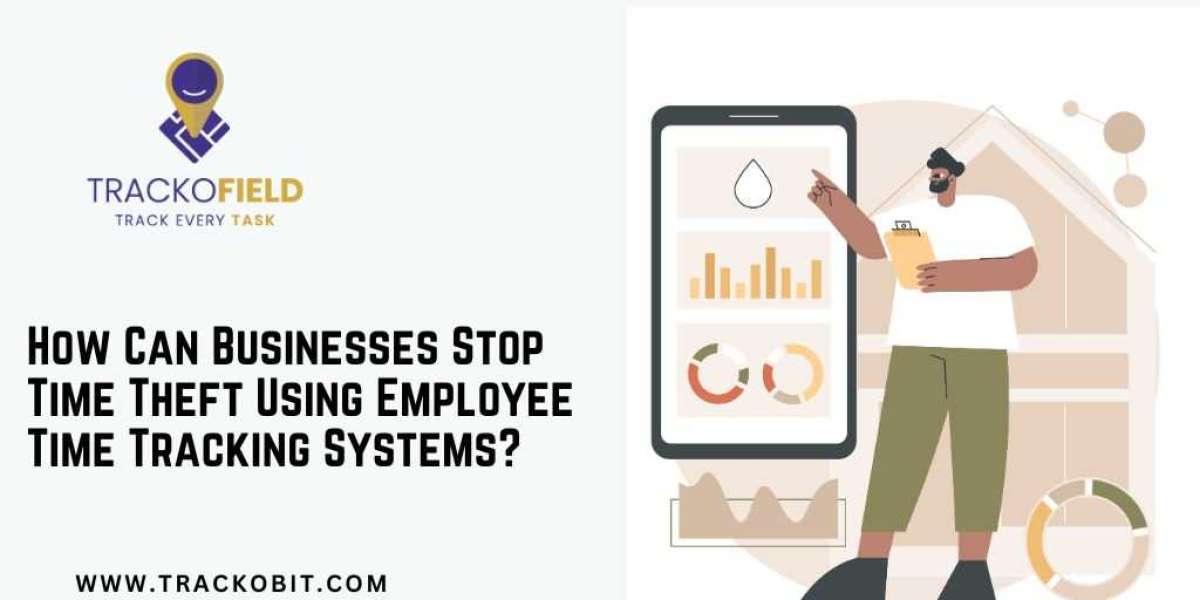Businesses that involve fieldwork rely on employees working outside the office. Ensuring these employees are efficient and accountable can be challenging. Field employees are critical to a company’s operations, but tracking their productivity is often a concern. The emergence of employee time tracking software has been a game-changer in this space.
One significant risk is time theft, where employees misuse work hours for personal tasks. This can lead to reduced productivity and financial losses for businesses. According to a report, businesses lose approximately 4.5 hours per week per employee due to time theft. However, effective employee time tracking apps have reduced these losses by up to 30%.
Read on to discover how an employee time tracking software can help prevent time theft and improve operational efficiency.
What Operations Does A Field Employee Perform?
Field employees are workers who perform tasks outside the company’s premises. These roles can include sales personnel, delivery agents, technicians, and construction workers. They are essential to businesses that require on-site service delivery or product distribution.
Field employees typically engage in tasks such as meeting clients, servicing equipment, delivering goods, or conducting site inspections. Their job demands that they travel between locations, manage schedules, and report progress regularly.
Managing the productivity of field employees can be difficult because their work is performed away from direct supervision. This opens the door to potential misuse of company time.
How Can Field Employees Commit Time Theft?
Time theft occurs when employees manipulate their work hours to benefit themselves. This can happen intentionally or unintentionally, but it negatively affects the company’s productivity and payroll. Here are five common ways field employees commit time theft:
Falsifying Work Hours
Employees might overstate the time they spend working in the absence of proper field employee task tracking. For example, they may report arriving at a job site earlier than they did or leaving later than they actually did.
Taking Extended Breaks
Instead of sticking to scheduled break times, field employees may take longer breaks or run personal errands during work hours
Buddy Punching
Buddy punching occurs when one employee clocks in or out for another, making it appear that both are working. This is common in businesses that rely on manual punch-in systems.
Unapproved Overtime
Employees may work overtime without approval, and then inflate their hours to claim extra pay. This is especially common in businesses where overtime pay is standard practice.
Idle Time Between Jobs
Employees may waste time between tasks, dragging out job durations to avoid additional assignments or to make it seem like they’re busier than they are.
Time theft can lead to inflated payroll costs and reduced productivity, which can be damaging to a business in the long run.
Best 5 Ways To Tackle The Time Theft Issue Using An Employee Time Tracking System
To counter time theft, companies can implement employee time-tracking apps. These employee time-tracking apps provide real-time monitoring, ensuring that employees work as scheduled. Here are five strategies to prevent time theft through employee time tracking software:
Automated Clock-in and Clock-out
Employee time tracking system allows employees to clock in and out digitally, eliminating manual errors and reducing the chances of falsifying work hours. Employees can use a mobile app or GPS-enabled device to log their start and end times accurately.
GPS Location Tracking
Employee time tracking software ensures that employees are where they’re supposed to be during work hours. This is especially useful for field employees, as the system can track their movements between job sites. With this feature of the employee time tracking app, businesses can confirm that employees are visiting job locations and not wasting time elsewhere.
Geofencing
Geofencing sets virtual boundaries around specific job sites. When an employee enters or leaves the designated area, the field employee time tracking software automatically logs their entry and exit. This reduces the chances of buddy punching or false location reporting, ensuring employees spend time only in approved areas.
Break Monitoring
Employee tracking software can monitor and regulate break times. These field employee time tracking softwares send reminders to employees when breaks are over and can log their exact break durations. This ensures that employees do not take extended or unauthorized breaks.
Overtime Management
Employee time tracking software can manage and regulate overtime. Service scheduling software allows employers to approve or deny overtime requests, ensuring employees don’t claim extra hours without proper authorization. This feature of field employee task tracking helps prevent unapproved overtime claims and keeps payroll costs under control.
Using these service scheduling software, businesses can significantly reduce time theft and ensure that field employees remain productive and accountable throughout the workday.
There are several reliable field employee time tracking software available, like TrackoField, that offer comprehensive solutions for preventing time theft. However, businesses should evaluate their needs and choose a field employee time tracking software that fits their specific operations.
Conclusion
Time theft is a major concern for businesses with field employees. It can lead to financial losses, reduced productivity, and inflated payroll expenses. However, using employee time tracking can help curb these issues. From automated clock-ins to GPS tracking and break monitoring, these systems provide the tools necessary to keep field employees accountable. Businesses can reduce time theft significantly by implementing these strategies.
Choosing the right employee time tracking software can transform your workforce's productivity and help your business achieve better results.








